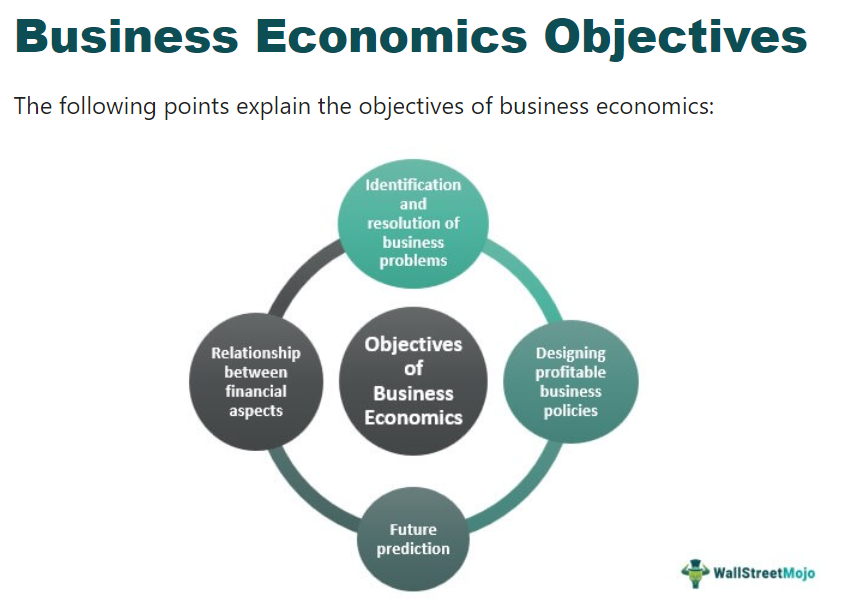Business and Economics Approaches for Long-Term Growth in a Evolving World
Business and Economics Approaches for Long-Term Growth in a Evolving World
Blog Article
Understanding Financial Concepts for Better Service Decision-Making
In the facility landscape of modern company, a detailed understanding of economic principles can dramatically enhance decision-making processes. The application of these financial concepts frequently exposes unanticipated challenges and chances that can redefine calculated strategies.
The Basics of Economic Theory
Economic concept works as the structure for understanding how companies and people make choices in the presence of shortage. At its core, economic concept takes a look at the appropriation of restricted sources to please endless desires. This fundamental principle of scarcity necessitates trade-offs, compelling decision-makers to assess the benefits and costs related to different options.
The two main branches of economic theory are macroeconomics and microeconomics. Microeconomics concentrates on specific representatives, such as companies and consumers, evaluating their habits and interactions in particular markets. It emphasizes concepts like supply and demand, cost elasticity, and market equilibrium, which are crucial for understanding just how rates are established and exactly how resources are distributed.
Conversely, macroeconomics checks out the economic situation as an entire, attending to wider issues such as rising cost of living, joblessness, and economic growth. It gives insights into systemic sensations that impact all economic representatives, assisting policymakers in crafting efficient economic approaches.
Eventually, a solid grounding in financial theory is important for efficient service decision-making. By comprehending the principles of deficiency, trade-offs, and market dynamics, organizations can better navigate intricate atmospheres and make educated choices that boost their competitive benefit.
Secret Economic Indicators
Key economic indicators work as important devices for evaluating the wellness and direction of an economic climate, giving important understandings for company decision-making. These indications are quantitative actions that reflect the financial efficiency and can be categorized into leading, lagging, and coincident indications.
Leading indicators, such as customer self-confidence indexes and stock market patterns, predict future economic task, permitting companies to prepare for changes out there. Delaying indicators, like unemployment prices and corporate profits, supply understandings into the economic climate's previous efficiency, helping companies to examine lasting trends. Coincident signs, such as GDP development and retail sales, rise and fall simultaneously with the economic climate, using a real-time photo of financial problems.
Understanding these indicators allows services to make enlightened choices regarding investments, resource allotment, and tactical planning. As an example, an increase in consumer confidence may trigger business to boost manufacturing in expectancy of higher demand. Alternatively, increasing joblessness rates might result in a reevaluation of expansion plans. By closely monitoring these key economic indications, organizations can browse unpredictabilities and position themselves efficiently in the ever-changing economic landscape, inevitably boosting their decision-making procedures and long-lasting success.

Market Structures and Characteristics
Understanding market structures and characteristics is essential for organizations aiming to flourish in affordable environments. Market structures, extensively classified into ideal competitors, monopolistic competitors, oligopoly, and syndicate, considerably affect rates techniques, product differentiation, and competitive behavior. Each framework offers unique difficulties and possibilities that can determine a Visit Website firm's strategic direction.
Oligopolies, identified by a few dominant gamers, lead to synergistic decision-making; companies should thoroughly consider competitors' feedbacks to their activities. Monopolies exist when a single company regulates the market, resulting in maximum pricing power yet commonly drawing in regulatory analysis.
Recognizing these dynamics enables organizations to expect market trends, adjust methods, and maximize resource allocation. In addition, identifying how exterior aspects like technology and law effect these frameworks can improve strategic preparation. By mastering market frameworks and dynamics, companies can make informed choices, ultimately boosting their competitive setting and driving sustainable growth.
Consumer Habits Insights
Customer habits plays a crucial function fit service strategies and results. Recognizing how customers make acquiring decisions, their choices, and the factors influencing their actions can considerably boost a company's capability to fulfill market needs. Secret understandings right into consumer habits can be stemmed from evaluating demographics, psychographics, and behavior patterns.
Group variables such as age, earnings, education and learning, and sex degree provide a foundational understanding of target markets. Psychographics dig much deeper, discovering customers' lifestyles, values, and attitudes, which can influence brand commitment and product perception. Behavioral insights, such as purchasing regularity and action to promos, are important for tailoring advertising efforts.
Additionally, external factors like financial problems, social patterns, and technological developments also impact customer selections. During economic declines, customers may prioritize crucial items over high-end items, modifying need patterns.
Applying Business Economics to Method
Insights acquired from consumer actions contribute in formulating effective service techniques. By leveraging economic concepts, companies can much better comprehend market dynamics, maximize resource appropriation, and improve competitive placing. Evaluating need elasticity, for example, allows firms read to change pricing methods to optimize income while continuing to be attractive to customers.
Additionally, recognizing market segmentation permits businesses to customize their offerings, ensuring they satisfy the details requirements and choices of diverse consumer teams. Business and Economics. This targeted approach improves consumer fulfillment and fosters brand commitment

Including video game concept into tactical planning additionally gives understandings into competitive behavior, allowing companies to prepare for competing actions and devise counter-strategies properly.
:max_bytes(150000):strip_icc()/business-economics.asp-FINAL-625037bc97be4d2291ea40d6d291c9f5.png)
Final Thought
In verdict, a thorough understanding of financial concepts substantially boosts service decision-making. By taking a look at market structures, evaluating customer behavior, and evaluating vital economic indications, firms can establish reliable approaches that align with market needs.
In the facility landscape of modern company, an extensive understanding of financial concepts can dramatically improve decision-making processes.Leading indicators, such as consumer self-confidence indexes and supply market trends, predict future financial activity, allowing businesses to prepare for modifications in the market. By closely monitoring these vital financial indicators, businesses can browse uncertainties and place themselves successfully in the ever-changing economic landscape, inevitably improving their decision-making processes and long-lasting success.
By leveraging economic concepts, companies can much better comprehend market dynamics, enhance resource appropriation, and improve affordable positioning.In verdict, a detailed understanding of economic principles significantly improves business decision-making.
Report this page